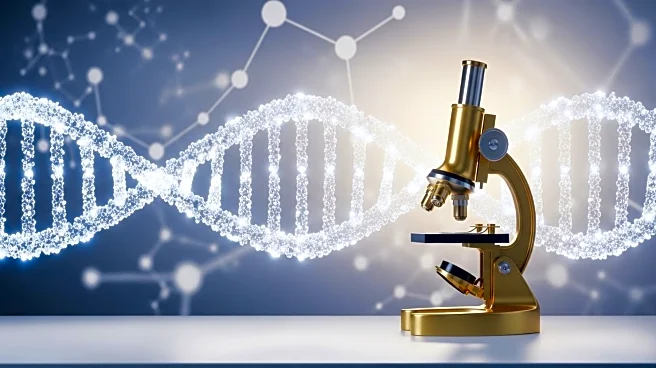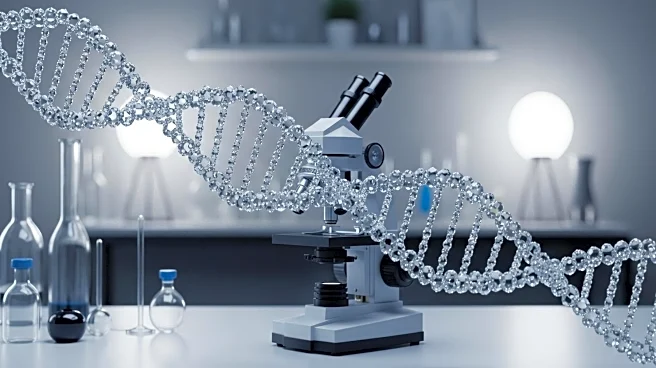What's Happening?
Recent preclinical data has highlighted the gene ABHD18 as a potential therapeutic target for Barth Syndrome, a rare genetic condition affecting mitochondrial function. The syndrome is caused by mutations in the Tafazzin gene, leading to an imbalance in lipid production that disrupts mitochondrial health. Researchers have discovered that inhibiting ABHD18 can restore mitochondrial function and improve heart health in preclinical models. The study, involving international collaboration, found that blocking ABHD18 with a small-molecule drug reduced harmful lipid levels and improved outcomes in models of Barth Syndrome.
Why It's Important?
Barth Syndrome is a life-threatening condition with limited treatment options, primarily affecting boys. The identification of ABHD18 as a therapeutic target offers hope for developing effective treatments that address the underlying genetic causes. By improving mitochondrial function, therapies targeting ABHD18 could enhance quality of life and survival rates for patients. This research underscores the importance of genetic studies in uncovering new pathways for treating rare diseases, potentially leading to breakthroughs in personalized medicine.
What's Next?
Further clinical trials are needed to validate the efficacy and safety of ABHD18-targeted therapies in humans. Researchers will continue to explore the genetic mechanisms involved in Barth Syndrome to refine treatment strategies. Collaboration between academic institutions and biotech companies will be crucial in advancing these therapies from preclinical models to clinical applications.











